Mayo Clinic 34th Annual Internal Medicine Board Review 2025 (Videos+Slides)
$1,199.00 Original price was: $1,199.00.$169.97Current price is: $169.97.
Immediate access to your resources, enabling you to start your learning journey without delay.
At ChidoPhysio, we guarantee affordability. Our prices are always up to 80% lower than other providers, ensuring you receive top-quality Physical therapy books without breaking the bank.
At ChidoPhysio, our dedicated customer support team is here to assist you every step of the way 24/7 . Your questions and concerns are our top priority.
Rest easy knowing that your payment is secure and encrypted when you choose to purchase our dental education resources. We offer trusted payment options, including PayPal and Stripe, to safeguard your financial information. Your privacy and security are our top priorities.
Description
The 34th Annual Mayo Clinic Internal Medicine Board Review (IMBR) is a high-yield, intensive course designed to assist with the American Board of Internal Medicine (ABIM) Initial and Maintenance of Certification Examinations and to provide a relevant review for daily practice. Learners gain access to excellent Mayo Clinic faculty, unparalleled content and techniques proven to enhance learning and recall.
Schedule : June 2 – 6, 2025 – Central Tim
Target Audience
This course is designed for internal medicine physicians who are:
- Intending to obtain a thorough review in internal medicine
- Completing their maintenance of certification knowledge modules
- Taking the initial ABIM certification examination
- Taking the ABIM maintenance of certification examination
Learning Objectives
Upon completion of this activity, participants should be able to:
Identify topics and content areas for personal growth to tailor self-study
- Recall clinical presentation of conditions critical to the practice of internal medicine and its subspecialties
- Select next best steps in the evaluation, diagnosis and management of common and life-threatening conditions
- Apply evidence-based medicine principles to answer statistical and clinical questions
- Implement best current evidence-based practices into patient care
34th Annual Internal Medicine Board Review
Hilton Rochester Mayo Clinic Area Hotel
| Monday, June 2, 2025 | |
| 6:00 a.m. | Registration / Breakfast / Exhibits |
| 7:00 a.m. | Welcome and Course Overview April R. Christensen, M.D., M.S. and David Raslau, M.D., M.P.H. |
| 7:10 a.m. | GeriatricsMaria D. Mendoza de la Garza, M.D.
|
| 8:00 a.m. | DermatologySindhuja Sominidi Damodaran, M.B.B.S., M.D.
|
| 8:40 a.m. | AllergyGerald W. Volcheck, M.D.
|
| 9:35 a.m. | Break and Exhibits |
| 9:55 a.m. | Nutrition/Nutritional DisordersKalpana Muthusamy, M.B.B.S., M.D.
|
| 10:40 a.m. | HEENTMelissa H. Bogin, M.D.
|
| 11:20 a.m. | Lunch and Exhibits |
| 12:05 p.m. | Men’s HealthJason H. Szostek, M.D.
|
| 12:55 p.m. | Women’s Health: Adolescence and BeyondJill M. Huber, M.D.
|
| 1:50 p.m.
|
Hypertension and HyperlipidemiaJoel D. Beachey, M.D.
guidelines
comorbidities |
| 2:35 p.m. | Break and Exhibits |
| 2:50 p.m. | PsychiatryWilliam B. Leasure, M.D.
|
| 3:40 p.m. | Neurology Rafid Mustafa, M.D.
|
| 4:50 p.m. | Sprint Test |
| 5:20 p.m. | Adjourn |
| Tuesday, June 3, 2025 | |
| 6:00 a.m. | Registration / Breakfast / Exhibits |
| 7:00 a.m. | Endocrinology – Diabetes Part 1Pankaj Shah, M.D.
|
| 7:50 a.m. | Endocrinology – Diabetes and Hypoglycemia Part 2Pankaj Shah, M.D.
|
| 8:30 a.m.
|
Endocrinology – Bone and ParathyroidKurt A. Kennel, M.D.
|
| 9:25 a.m. | Break and Exhibits |
| 9:40 a.m. | Endocrinology – ThyroidKharisa N. Rachmasari, M.D.
|
| 10:30 a.m. | Endocrinology – Pituitary, Gonadal, and Adrenal Disorders Lucinda Gruber, M.D. |
- Evaluate and manage the adrenal incidentaloma
- Diagnose and manage Cushing’s Syndrome and adrenal insufficiency
- Select appropriate evaluation and management strategies of pituitary tumors
- Identify the appropriate evaluation of secondary amenorrhea
- Identify the appropriate evaluation and management of male hypogonadism
11:15 a.m.
Rheumatology – Vasculitis
Matthew J. Koster, M.D.
- Recognize the various forms of vasculitis
- Identify initial treatment strategies for vasculitis
12:05 p.m.Lunch and Exhibits12:50 p.m.
Rheumatology – Gout and Spondyloarthropathies
Kerry Wright, M.B.B.S.
- List common causes of foot and ankle pain and their treatments
- Diagnose and treat crystalline induced disease
- Identify the diagnosis and treatment of spondyloarthropathies
1:45 p.m.
Rheumatology – Arthritis
Can M. Sungur, M.D., Ph.D.
- Diagnose and treat fibromyalgia
- Utilize physical exam and laboratory studies to diagnose and manage rheumatoid arthritis
- Diagnose and manage symptomatic osteoarthritis
2:45 p.m.
Rheumatology – Systemic Lupus Erythematosus and Anti-Phospholipid Antibody Syndrome
Uma Thanarajasingam, M.D., Ph.D.
- Diagnose and develop initial management of systemic lupus erythematosus (SLE)
- Review complications of SLE
- Assess and manage antiphospholipid antibody syndrome
3:35 p.m.Break and Exhibits3:50 p.m.
Rheumatology – Raynaud’s, Systemic Sclerosis, Inflammatory Myopathies, and Sjogren’s Syndrome
Alicia M. Hinze, M.D.
- Diagnose and manage secondary Raynaud phenomenon
- Recognize the clinical signs and symptoms of systemic sclerosis (scleroderma), inflammatory myopathies, and Sjogren’s disease
- Obtain appropriate diagnostic studies for evaluation of systemic sclerosis, inflammatory myopathies, or Sjogren’s Disease and interpret the results
4:30 p.m.
Critical Care
Jeremy M. Clain, M.D.
- Recall the diagnosis and management of hypovolemic, distributive, cardiogenic shock
and tamponade
- Recall the etiology and pathophysiology of respiratory failure and select appropriate
testing and management strategies
- Select appropriate tests and management strategies for sepsis based on
pathophysiology
- Diagnose and manage transfusion-related reactions
5:15 p.m.
Sprint Test5:35 p.m.Adjourn
| Wednesday, June 4, 2025 | |
| 6:00 a.m. | Registration / Breakfast / Exhibits |
| 7:00 a.m. | Cardiology – Heart Failure and Pericardial DiseaseMichael W. Cullen, M.D.
and heart failure with preserved ejection fraction
Therapies
pericardial disease, including acute pericarditis, constrictive pericarditis, and cardiac tamponade |
| 8:05 a.m. | Cardiology – Coronary Artery Disease Benjamin D. Nordhues, M.D.
|
| 8:55 a.m. | Break and Exhibits |
| 9:10 a.m. | Cardiology – ECG’s, Atrial Fibrillation, and Other ArrhythmiasAbhishek J. Deshmukh, M.B.B.S.
fibrillation
management strategies |
| 9:55 a.m. | Cardiology – Valvular DiseaseJeffrey B. Geske, M.D.
choose appropriate management
aortic stenosis and hypertrophic cardiomyopathy
appropriate testing, and interpret the findings accurately
regurgitation, mitral regurgitation, and tricuspid regurgitation |
| 10:45 a.m. | Cardiology – Vascular DiseaseRobert D. McBane II, M.D.
|
| 11:35 a.m. | Lunch and Exhibits |
| 12:20 p.m
|
Pulmonary – COPD, Asthma, and OSAKara L. Dupuy-McCauley, M.D.
diagnose and manage patients
diagnosis Recall the diagnosis and management of chronic obstructive pulmonary disease |
| 1:00 p.m. | Pulmonary – Pulmonary TestsAshley M. Egan, M.D.
|
| 1:45 p.m. | Pulmonary – ILD, Pulmonary HypertensionCassandra M. Braun, M.D.
|
| 2:25 p.m. | Oncology – Breast/GynecologySusan N. Kok, M.D.
management principles
|
| 3:15 p.m. | Break and Exhibits |
| 3:30 p.m. | Oncology – PulmonaryKonstantinos Leventakos, M.D.
treatments
|
| 4:15 p.m. | Oncology – Gastrointestinal CancersHao Xie, M.D., Ph.D.
|
| 5:00 p.m. | Sprint Test |
| 5:20 p.m. | Adjourn |
| Thursday, June 5, 2025 | |
| 6:00 a.m. | Registration / Breakfast / Exhibits |
| 7:00 a.m. | Gastroenterology – Esophageal and GastricKarthik Ravi, M.D.
disease
|
| 8:00 a.m. | Gastroenterology – Hepatology, Gall Bladder, and BiliaryWilliam Sanchez, M.D.
variceal bleeding and hepatocellular carcinoma)
|
| 8:55 a.m. | Break and Exhibits |
| 9:10 a.m. | Gastroenterology – Small BowelSeth R. Sweetser, M.D.
|
| 10:20 a.m. | Gastroenterology – Colon and PancreasXiao Jing (Iris) Wang, M.D.
|
| 11:15 a.m. | Infectious Diseases – Endocarditis and CNS InfectionsMatthew J. Thoendel, M.D., Ph.D.
|
| 12:05 p.m. | Lunch and Exhibits |
| 12:50 p.m. | Infectious Diseases – Pneumonia and TravelMadiha Fida, M.B.B.S.
|
| 1:30 p.m. | Infectious Diseases – HIV/TBMary J. Kasten, M.D.
|
| 2:30 p.m. | Break and Exhibits |
| 2:45 p.m. | Infectious Diseases – GI and GUMac Chesdachai, M.D.
|
| 3:15 p.m. | Infectious Diseases – Vaccine-Preventable Diseases and ZoonosessMac Chesdachai, M.D.
|
| 4:00 p.m. | Infectious Diseases – Skin and Bone Infections Hussam Tabaja, M.D.
|
| 4:55 p.m. | Sprint Test |
| 5:15 p.m. | Adjourn |
| Friday, June 6, 2025 | |
| 6:00 a.m. | Registration / Breakfast / Exhibits |
| 7:00 a.m. | Hematology – Abnormal CBCCarrie A. Thompson, M.D.
|
| 7:45 a.m. | Hematology – Lymphoid MalignanciesCarrie A. Thompson, M.D.
|
| 8:25 a.m. | Hematology – Plasma Cell DisordersMustaqeem A. Siddiqui, M.D., M.B.A.
|
| 9:10 a.m. | Break and Exhibits |
| 9:25 a.m. | Hematology – Myeloid MalignanciesMithun V. Shah, M.D.
|
| 10:25 a.m. | Hematology – Bleeding and CoagulationMeera Sridharan, M.D., Ph.D.
|
| 11:25 a.m. | Lunch and Exhibits |
| 12:10 p.m. | Nephrology – Electrolyte and Acid-base Cases Ladan Zand, M.D.
|
| 1:35 p.m. | Break and Exhibits |
| 1:50 p.m. | Nephrology –Nephrolithiasis and Acute Kidney Injury Part 1Michael A. Mao, M.D.
|
| 2:35 p.m. | Nephrology – Acute Kidney Injury Part 2Michael A. Mao, M.D.
|
| 3:20 p.m. | Nephrology – Chronic Kidney DiseaseVirginia (Ginny) A. Dines, M.D.
|
| 4:10 p.m. | Sprint Test |
| 4:30 p.m. | Adjourn |
26 reviews for Mayo Clinic 34th Annual Internal Medicine Board Review 2025 (Videos+Slides)
Ebooks related to this title
-
PDF
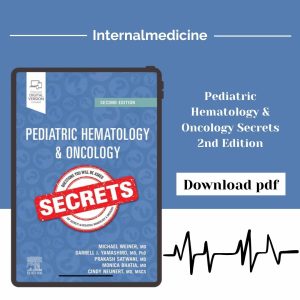
Pediatric Hematology & Oncology Secrets 2nd Edition
Rated 1.00 out of 5$71.89Original price was: $71.89.$27.89Current price is: $27.89. Add to cart -
PDF
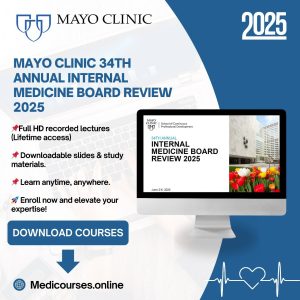
Mayo Clinic 34th Annual Internal Medicine Board Review 2025 (Videos+Slides)
Rated 2.58 out of 5$1,199.00Original price was: $1,199.00.$169.97Current price is: $169.97. Add to cart -
PDF
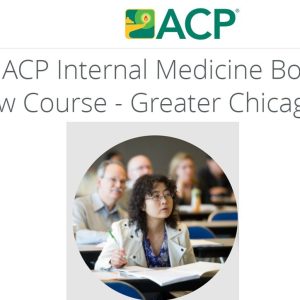
2025 ACP Internal Medicine Board Review Course – Greater Chicago, IL
Rated 4.5 out of 5$1,495.00Original price was: $1,495.00.$149.97Current price is: $149.97. Add to cart
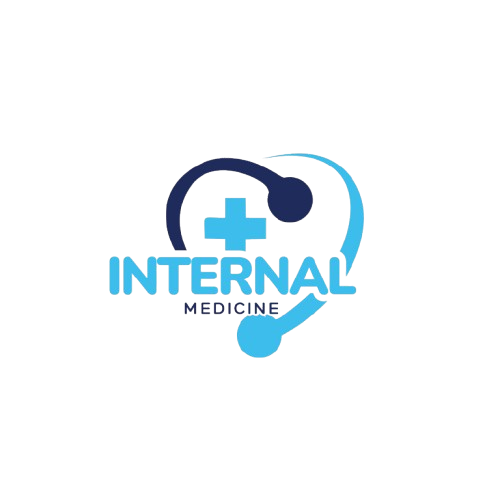
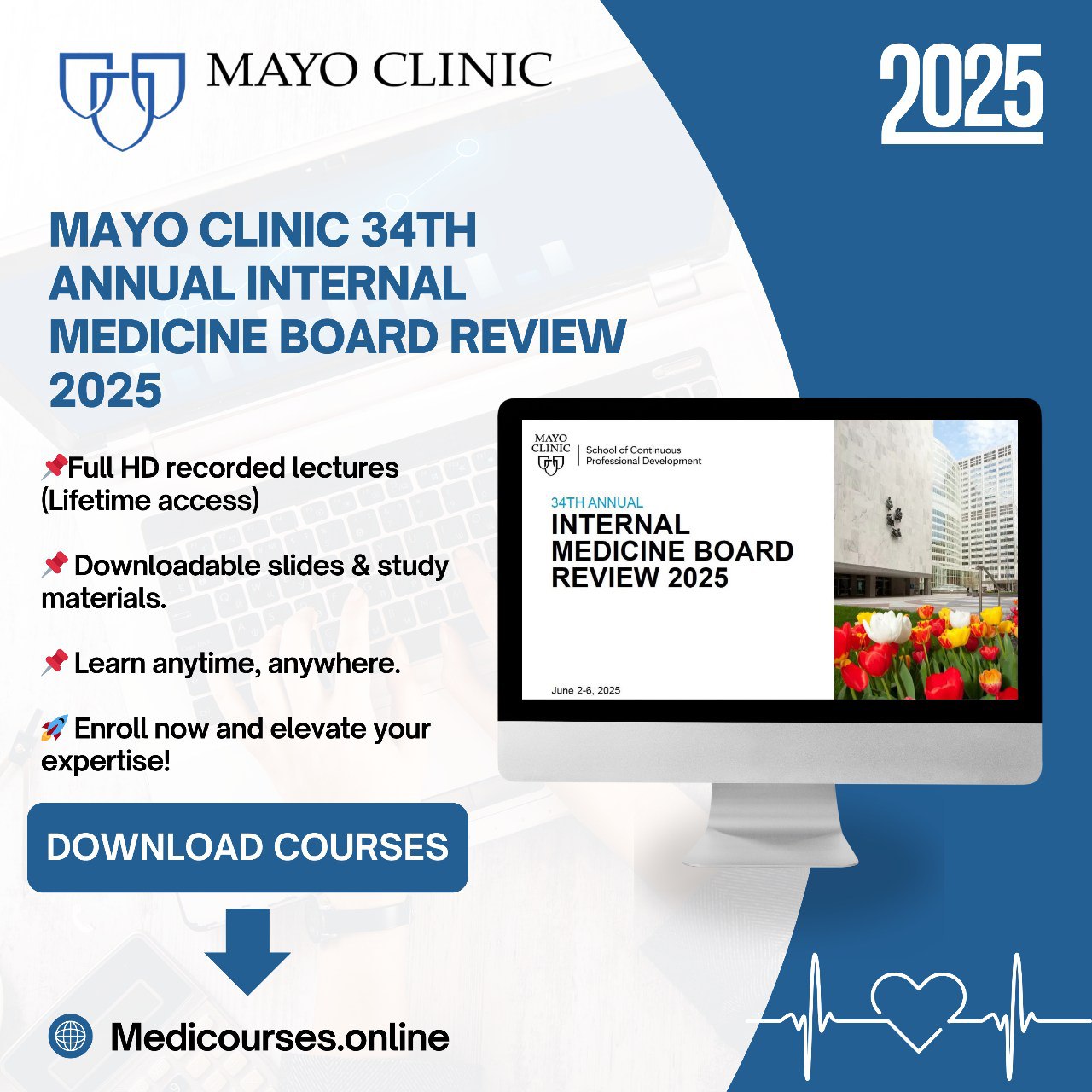
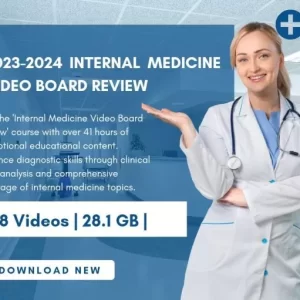

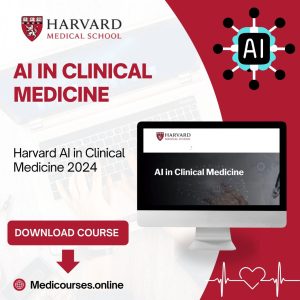
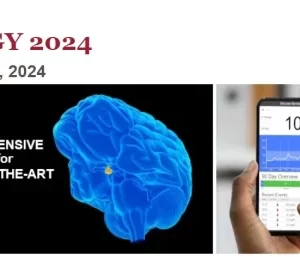
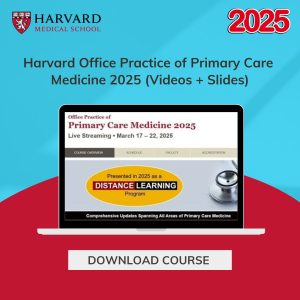
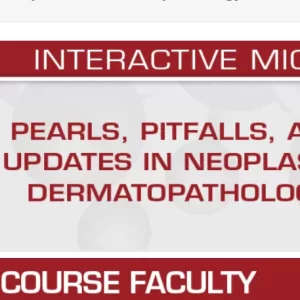
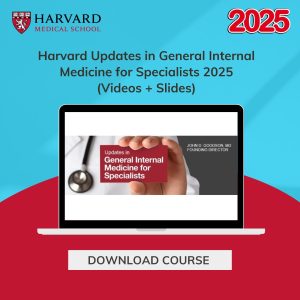
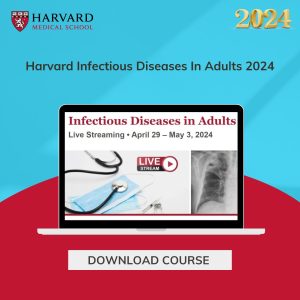
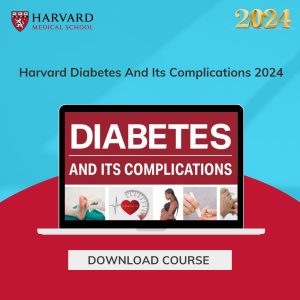

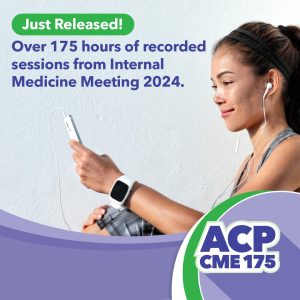
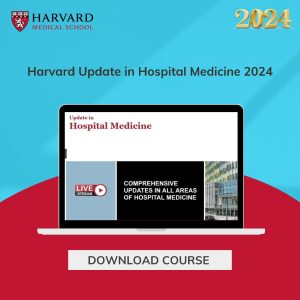
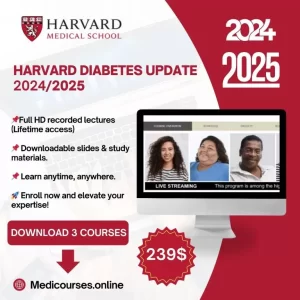
Поговорите с адвокатом, чтобы понять, насколько он понимает вашу проблему.
Не забывайте об обязательной проверке процесса.
Получите бесплатную юридическую консультацию круглосуточно на [url=https://konsultaciya-advokata51.ru]бесплатный номер юриста[/url].
Защита прав граждан — это важный аспект современного общества.
Важно обратить внимание на уровень профессионализма юристов. Наши юристы обладают необходимыми знаниями и опытом. Наша задача – предоставить клиентам лучший сервис.
Важно, чтобы юридические услуги были доступны каждому. На нашем сайте можно найти информацию о ценах и услугах. Мы уверены, что каждый найдет подходящее решение для себя.
У нас есть возможность получить консультацию удаленно. Сегодня возможность получить помощь через интернет очень важна. Наши специалисты готовы ответить на ваши вопросы круглосуточно.
сайт yuridicheskaya-konsultaciya34.ru предлагает профессиональные юридические услуги, направленные на решение различных правовых вопросов. Команда опытных юристов готова помочь вам в самых сложных ситуациях. Мы понимаем, что правовые проблемы могут быть стрессовыми, мы предлагаем внимательное отношение к каждому клиенту.
Мы предлагаем широкий спектр услуг, включая консультации по гражданским и уголовным делам. Мы приглашаем вас по вопросам, связанным с трудовым правом, семейными делами и другими юридическими аспектами. Мы понимаем, что каждая ситуация требует индивидуального подхода, и готовы предложить оптимальное решение.
Мы зарекомендовали себя как надежный партнер в сфере юриспруденции. Клиенты выбирают нас за профессионализм за высокое качество обслуживания и результативность. Все наши юристы имеет опыт работы в различных областях права и готов поддержать вас в любое время.
Не откладывайте решение своих проблем , чтобы получить квалифицированную юридическую помощь. Наша команда будет рада проконсультировать вас . Юридическая консультация ждет вас на yuridicheskaya-konsultaciya34.ru.
Мы предоставляем доступ к высококлассным юридическим услугам, которые помогут вам отстоять ваши интересы.
konsultaciya-advokata11.ru предлагает широкий спектр услуг.. Вы сможете получить консультации по различным правовым вопросам.. Получите помощь квалифицированного юриста на [url=https://konsultaciya-advokata11.ru] задать вопрос юристу онлайн бесплатно без телефона[/url].
Наша команда адвокатов всегда готова оказать поддержку.. Мы стремимся предоставить клиентам только лучшие юридические решения..
Свяжитесь с нами, чтобы убедиться в эффективности наших консультаций. Мы гарантируем профессионализм и индивидуальный подход к каждому клиенту..
С 'konsultaciya-advokata81.ru' вы получите не только поддержку, но и уверенность в своем будущем.
Опытные адвокаты из нашего сервиса готовы помочь вам в решении различных правовых вопросов. Мы предлагаем широкий спектр услуг , включая консультации, представительство в суде и помощь в составлении документов.
При обращении к нашим юристам, вы можете рассчитывать на высококачественное обслуживание. Каждый клиент для нас важен, и мы стремимся предложить максимально выгодные условия . Наша цель – сделать процессы максимально прозрачными и понятными.
На нашей платформе вы можете ознакомиться с отзывами наших клиентов . Мы предоставляем полезные советы и рекомендации. Также у нас есть разделы с полезными статьями , которые помогут вам быть в курсе последних изменений в законодательстве.
Связываясь с нами , вы можете задать все интересующие вас вопросы. Не теряйте время, если у вас есть юридические сомнения . Ваше спокойствие и доверие — наш приоритет .
На yuridicheskaya-konsultaciya23.ru вы можете задать все интересующие вас вопросы.
Также уточните, как будет строиться оплата за услуги после первичного общения.
ресурс yuridicheskaya-konsultaciya101.ru предлагает профессиональные юридические услуги для компаний. Наши эксперты готовы предложить решения в любой ситуации.
Наша команда считает, что каждый пользователь уникален. Именно поэтому мы придерживаемся индивидуального подхода к каждому делу. Наши юристы тщательно изучает ключевые моменты ситуации, чтобы найти оптимальное решение.
Кроме того, мы предлагаем первичные консультации без оплаты для новых клиентов. Это позволяет нам лучше понять проблемы клиента и принять решения.
Процесс обращения к нам дает вам доступ к компетентным юристам, которые знают все тонкости законодательства. Наша команда гарантирует вы получите высококачественное сопровождение на всех этапах.
Такое оборудование обеспечивает точное и быстрое изготовление деталей из различных материалов.
Применение ЧПУ сокращает время производства и уменьшает количество брака. Подобные агрегаты востребованы в автомобильной, медицинской и энергетической сферах.
#### **2. Принцип работы токарных станков с ЧПУ**
Работа оборудования строится на заранее созданной программе, определяющей последовательность обработки.
Датчики положения и скорости обеспечивают стабильность и точность обработки. Благодаря этому каждое изделие соответствует заданным параметрам без дополнительной доводки.
#### **3. Преимущества токарных станков с ЧПУ**
Главное достоинство таких станков — высокая скорость и точность обработки.
Программное управление минимизирует ошибки и повышает эффективность работы. Также оборудование легко адаптируется под изготовление разных деталей без длительной переналадки.
#### **4. Перспективы развития токарных станков с ЧПУ**
В будущем ожидается увеличение степени автоматизации и интеграция искусственного интеллекта.
Внедрение интернета вещей (IoT) позволит удаленно контролировать производственные процессы. Такие инновации повысят конкурентоспособность предприятий и снизят производственные издержки.
---
### **Спин-шаблон:**
#### **1. Введение в токарные станки с ЧПУ**
Современное производство сложно представить без токарных станков с ЧПУ. Эти устройства позволяют выполнять высокоточную обработку металлических и неметаллических заготовок.
Применение ЧПУ сокращает время производства и уменьшает количество брака. Сегодня станки с ЧПУ используются в машиностроении, авиации и других отраслях промышленности.
*(Шаблон продолжается аналогично для всех последующих разделов.)*
Консультация специалиста в области права может стать решающим моментом. Юридическая помощь необходима в различных ситуациях, и важно правильно выбрать специалиста.
Начать следует с квалификации вашего вопроса. Например, это может быть гражданское право, уголовное или административное.
Необходимо уделить внимание выбору подходящего юриста для консультации. Проверьте отзывы клиентов о работе юриста, это поможет оценить его репутацию.
После выбора юриста необходимо подготовка к консультации. Полный пакет документов позволит юристу более точно оценить положение дел.
Юридическая консультация — важный этап для решения множества правовых вопросов. Профессиональные юристы помогут вам понять сложные правовые аспекты и отстоять ваши права.
Обращение к юристу — это первый важный шаг в решении вашей проблемы. Профессионал внимательно выслушает вашу ситуацию и предложит оптимальные пути решения проблемы.
Некоторые люди стесняются обращаться за помощью к юристам, считая это излишним. Тем не менее, качественная юридическая помощь может сэкономить значительные средства и время в будущем.
Портал konsultaciya-yurista42.ru предлагает разнообразные юридические услуги. Здесь работают опытные специалисты, готовые помочь вам в любое время.
The binding of a ligand to a GPCR leads to a conformational shift in the receptor.
Каждый человек, сталкиваясь с юридическими вопросами, нуждается в грамотной помощи. Помощь юриста может предотвратить множество неприятностей и обеспечить защиту ваших прав.
Существуют различные сферы права, в которых юрист может предоставить свою помощь. Сферы права, такие как уголовное, гражданское или семейное, требуют специальных знаний и опыта.
Выбирая юриста, стоит учитывать его профессиональный опыт и уровень квалификации. Проверка отзывов о юристе может помочь вам составить представление о его работоспособности и уровне услуги.
Обычно процесс консультации у юриста состоит из нескольких шагов. Обсуждение ситуации — это первый шаг, после которого юрист предлагает вам конкретные действия. Построение стратегии решения вопроса начинается с тщательного анализа вашей ситуации.
Юридические проблемы могут коснуться каждого, и важно иметь под рукой квалифицированного юриста. Консультация у юриста может оказаться решающей для решения ваших вопросов.
Юристы могут специализироваться в самых разных областях права, обеспечивая необходимую поддержку. Например, семейное, уголовное или гражданское право — это лишь некоторые из направлений, в которых возможно получить квалифицированную помощь.
При выборе юриста важно обратить внимание на его опыт и квалификацию. Проверка отзывов о юристе может помочь вам составить представление о его работоспособности и уровне услуги.
Как правило, консультация юриста проходит в несколько этапов. Сначала происходит обсуждение ключевых моментов вашего дела, после чего юрист предлагает решения. Эта информация необходима для составления плана действий и получения желаемого результата.
Наши юристы отличаются высоким уровнем квалификации и многолетним опытом.
Помощь юриста – это важный аспект, который влияет на нашу жизнь. В жизни порой возникают обстоятельства, когда требуется помощь квалифицированного юриста.
Осознание того, что юрист способен отстоять ваши права, является ключевым моментом. Даже в кажущихся простыми вопросах, таких как оформление бумаг, стоит проконсультироваться с экспертом.
На сайте pomoshch-yurista11.ru вы можете найти услуги опытных юристов. На этом сайте вы найдете специалистов, готовых ответить на любые ваши правовые вопросы.
Не забывайте, что грамотная юридическая помощь может сэкономить ваше время и деньги. Таким образом, в случае необходимости получите консультацию у юриста.
Юридическая помощь - это важный аспект, и правильный выбор консультанта может повлиять на результат дела. Каждый юрист имеет свои уникальные навыки и опыт, которые могут быть полезны в разных ситуациях.
Важно учитывать, в какой области права работает специалист. Например, если у вас есть проблемы с недвижимостью, то стоит обратиться к юристу, который занимается этой сферой.
Следующий момент - это репутация специалиста. Положительные рекомендации могут служить сигналом профессионализма.
Не забывайте уточнять стоимость услуг юриста. Обсудите все детали финансовых вопросов заранее, чтобы избежать неприятных сюрпризов.
является неотъемлемой частью. Недостаток знаний в правовых вопросах может привести к серьезным последствиям.
Первый важный аспект, о котором следует упомянуть, — это возможность получить юридическую поддержку. Сегодня многие юристы предлагают услуги онлайн. Такой подход значительно облегчает получение правовой помощи.
Следующий важный момент — это выбор юриста. Важно, чтобы юрист имел хорошие рекомендации и подходящий опыт. Многие граждане пренебрегают проверкой этих критериев, что может негативно сказаться на исходе дела.
Третий аспект, который следует рассмотреть, — это стоимость юридических услуг. Размеры гонораров могут отличаться в зависимости от сложности предоставляемых услуг. Необходимо детально обговорить все финансовые аспекты до начала сотрудничества.
Наконец, необходимо помнить об ответственности юриста. Помните, что недостаточная профессиональность может привести к серьезным последствиям. Качественный юрист — это залог успешного решения задач.
не может быть недооценена. Сложные правовые вопросы требуют профессионального подхода. Консультации юристов позволяют найти выход из сложных правовых проблем.
Клиенты часто обращаются к юристам из-за недостатка знаний в праве. Иногда людям срочно требуется юридическая помощь. Необходимо обратиться к опытному юристу для эффективного разрешения вопросов.
На данном сайте представлено много данных о том, как получить юридическую помощь. Здесь размещены контактные данные специалистов, которые готовы помочь. Необходимо заранее определить, к кому обращаться за юридической помощью.
Профессиональная юридическая помощь — это гарант вашего спокойствия. Не откладывайте на потом задавание вопросов специалистам. Юристы всегда готовы поддержать вас в решении правовых задач.
Юридическая консультация – необходимый этап для создания правовой защиты. Квалифицированный юрист сможет разъяснить неясные моменты в законодательстве.
В нашей организации трудятся профессионалы с многолетним опытом работы. Юристы нашей компании имеют опыт работы с разнообразными юридическими вопросами.
Наши услуги охватывают широкий спектр правовых вопросов, включая гражданское и уголовное право. Каждая консультация индивидуальна и проводится с учетом специфики вашего дела.
Заблаговременное обращение к юристу поможет избежать многих проблем. Записывайтесь на консультацию уже сегодня.
Обзор источников бесперебойного питания, с подробностями.
Преимущества использования ИБП, в этой статье.
Топ-5 ИБП для защиты техники, читайте.
Источники бесперебойного питания: что важно знать, узнайте.
Покупка ИБП: на что обратить внимание, познакомьтесь.
Обзор актуальных источников бесперебойного питания, в нашем гиде.
Технические аспекты ИБП, разберитесь.
Эффективное использование ИБП, узнайте.
Тенденции рынка источников бесперебойного питания, в гиде.
Правила подключения источника бесперебойного питания, читайте.
Как выбрать ИБП для разных нужд, в этой статье.
Как выбрать оптимальный ИБП, в нашем анализе.
Сравнение ИБП: какой выбрать?, читайте.
Пошаговая инструкция по установке ИБП, в статье.
Идеальные решения для бесперебойного питания, узнайте.
Устранение неисправностей ИБП, узнайте.
Как выбрать ИБП для игры, ознакомьтесь.
Что учесть при выборе источника бесперебойного питания, получите информацию.
бесперебойники [url=http://www.istochniki-bespereboynogo-pitaniya.ru/#бесперебойники]http://www.istochniki-bespereboynogo-pitaniya.ru/[/url] .